Vietnam to mobilise $360 billion for sustainable development targets
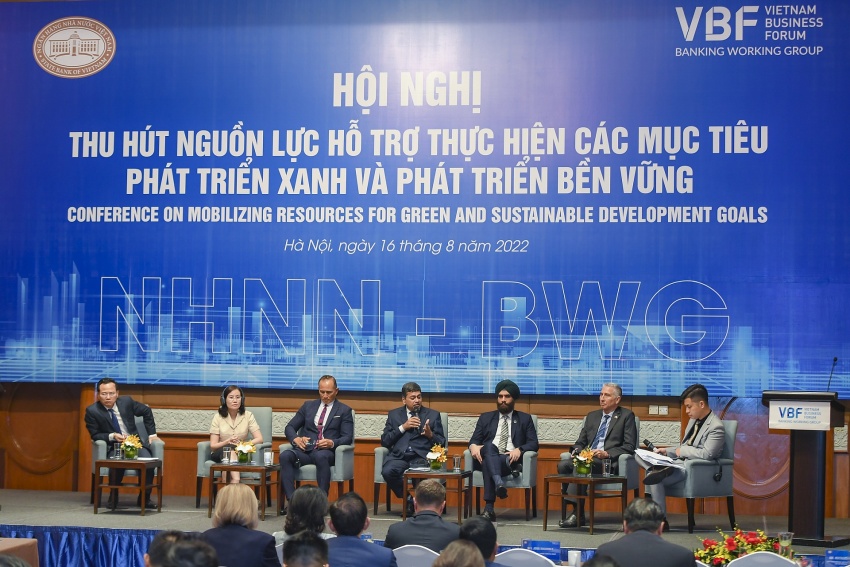 |
On August 16, the State Bank of Vietnam (SBV), in collaboration with the Banking Working Group (BWG), organised a conference in Hanoi to discuss measures to attract resources for the implementation of green growth and sustainable development targets.
Within the framework of the conference, participants agreed that Vietnam needs to start implementing effective adaptation and mitigation strategies to contain the challenges as climate impacts are quickly becoming stronger and more unpredictable.
According to the World Bank report, Vietnam has been ranked among the five countries that are most likely to be affected by climate change. Vietnam and Bangladesh are the two countries with the highest exposure to flooding, including riverine, flash, and coastal flooding. Floods represent the largest risk by economic impact in the country.
| Vietnam needs $360 billion to implement its green and sustainable development goals by 2030, 50 per cent of which will come from contributions from the private sector. |
To confront this situation, BWG chairperson Michele Wee said that finance plays a crucial role in helping Vietnam implement its green and sustainable growth goals and the government support should be strengthened with the participation of the domestic private sector and through public financial sources.
“Vietnam should establish a close, reasonable, and harmonious combination between socioeconomic development and environmental protection,” she said.
At the event, participants discussed the problems relating to mobilising resources, focusing on seeking specific solutions to unlock resources for green growth and creating confidence in international organisations and partners to support the government in fulfilling its COP26 commitments.
SBV Governor Nguyen Thi Hong said that Vietnam is one of the most vulnerable countries to climate change, so the country has rolled out measures to deal with its impacts and promote green and sustainable growth at the same time.
“The international community highly appreciated the strong commitments Prime Minister Pham Minh Chinh announced at COP26, especially the net-zero target. Thus, it is willing to support the country in the development of a circular economy and climate change response via policy consultancy, shared experience, and financial support,” Hong said.
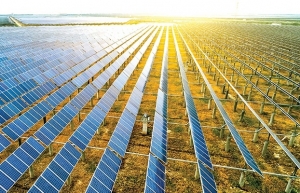 | Meeting ambitious climate objectives With the completion of a draft net-zero National Climate Change Strategy just five months after COP26, the government of Vietnam keeps sending a strong message about climate ambition. |
 | COP26 President hails Vietnam’s determination in transition to green, renewable energy National Assembly (NA) Chairman Vuong Dinh Hue had a meeting in London on June 30 (local time) with UK Cabinet Office Minister and President for 26th United Nations Climate Change Conference (COP26) Alok Sharma who expressed impression at Vietnam’s determination in transition to green and renewable energy. |
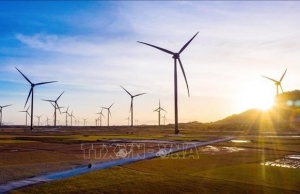 | Tasks, solutions set to fulfill COP26 commitments Deputy Prime Minister Le Van Thanh on July 25 signed a decision approving the project on tasks and solutions to implement outcomes of the 26th United Nations Climate Change Conference of the Parties (COP26). |
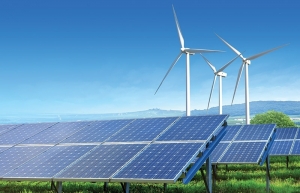 | Realising Vietnam’s just energy transition Vietnam is set to achieve net-zero by 2050. The announcement by Prime Minister Pham Minh Chinh at COP26 in Glasgow was a turning point in the country’s journey to sustainable development. The seriousness of intent and purposeful planning towards this net-zero commitment, with related pledges on reforestation and phasing out coal, has established Vietnam as a leader in the global effort to reduce carbon emissions and limit the negative impact of climate change. |
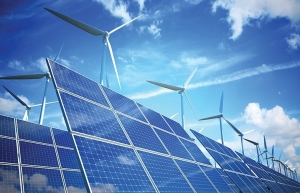 | Nascent green financing scene soon set for lift-off As Vietnam is pursuing the energy transition by focusing on developing renewable energy, the country is facing challenges with how to mobilise sufficient financial resources to meet its ambitious targets. |
What the stars mean:
★ Poor ★ ★ Promising ★★★ Good ★★★★ Very good ★★★★★ Exceptional
Related Contents
Latest News
More News
- VNPAY and NAPAS deepen cooperation on digital payments (February 11, 2026 | 18:21)
- Vietnam financial markets on the rise amid tailwinds (February 11, 2026 | 11:41)
- New tax incentives to benefit startups and SMEs (February 09, 2026 | 17:27)
- VIFC launches aviation finance hub to tap regional market growth (February 06, 2026 | 13:27)
- Vietnam records solid FDI performance in January (February 05, 2026 | 17:11)
- Manufacturing growth remains solid in early 2026 (February 02, 2026 | 15:28)
- EU and Vietnam elevate relations to a comprehensive strategic partnership (January 29, 2026 | 15:22)
- Vietnam to lead trade growth in ASEAN (January 29, 2026 | 15:08)
- Japanese business outlook in Vietnam turns more optimistic (January 28, 2026 | 09:54)
- Foreign leaders extend congratulations to Party General Secretary To Lam (January 25, 2026 | 10:01)

 Tag:
Tag:

























 Mobile Version
Mobile Version